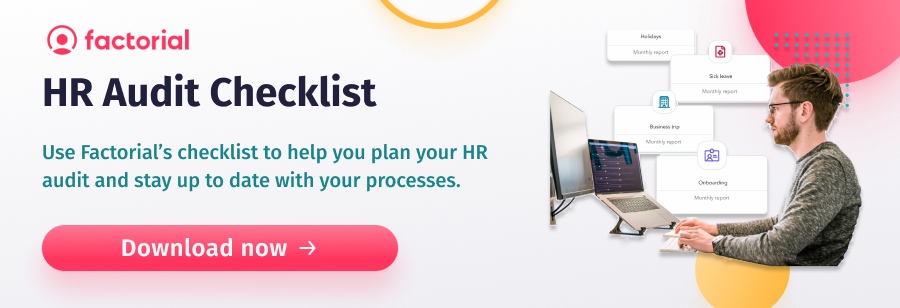International Women’s Day is celebrated every March 8 to raise awareness of the discrimination faced by women around the world and to encourage citizens to take action and drive gender parity. This year’s theme is #EmbraceEquity. The objective is to get the world talking about why equal opportunities are no longer enough.
In this post, we are going to discuss the impact of imposter syndrome on women and how it affects many women in leadership roles. We will also share 6 positive actions to empower women in the workplace. This will help you nurture a more inclusive workforce founded on equity for all employees.
International Women’s Day 2023
International Women’s Day (IWD) is an annual event designed to celebrate women all around the world. Observed on March 8 each year, the campaign aims to shine the spotlight on issues including gender equality, reproductive rights, and violence and abuse against women. In terms of the workplace, it’s an opportunity to drive the elimination of gender bias and promote equitable and nondiscriminatory employment practices.
Last year we saw the #BreakTheBias campaign which aimed to raise global awareness of conscious and unconscious bias towards women. International Women’s Day 2023 is all about embracing equity. Social media users are being encouraged to show their solidarity and share images, videos, and articles using #IWD2023 and the EmbraceEquity hashtag. By raising awareness in this way, we can all play a part in creating a more equitable and inclusive world.
The ultimate aim of the #EmbraceEquity campaign is to get the world talking about why “equal opportunities are no longer enough“. Instead of giving everyone the same thing in the hope that this encourages equality, we need to promote equity. In other words, we need to ensure that everyone has access to what they need to be successful.
True inclusion isn’t about everyone being equal; it’s about taking equitable action. Equality is the goal, and equity is the means to get there. When we embrace equity, we embrace diversity, and we embrace inclusion.
How does imposter syndrome impact women in leadership roles?
Imposter syndrome is a psychological phenomenon where someone feels they are a fraud. It can develop in someone’s personal or professional life, and it can affect anyone, regardless of age, gender, occupation or race. In fact, according to a behavioural psychology study published by Deloitte, 70% of the global workforce experiences imposter syndrome in the workplace at one time or another.
Imposter syndrome frequently impacts women in leadership roles. Very often, successful women question their knowledge, skills, ability, and performance. They feel they are not good enough and worry they will be outed and removed from their position of power. And this can hold many women back from achieving true equality. The more responsibility they are given, the more they doubt their skills and abilities.
“What if I’m not good enough? Will they realise that they’ve made a mistake by hiring me?”
That is why, this International Women’s Day, we wanted to pay tribute to our female managers by reminding them of the incredible work they do every day.
Men aren’t immune to imposter syndrome, of course. It’s just far more common in women. In fact, according to a UK study by Access Commercial Finance, men are 18% less likely to experience imposter syndrome.
Although many of these thoughts and feelings are often self-imposed, context also has an important role to play. That’s why it’s important for employers to create an environment that supports women in leadership and reduces the number of barriers that limit the progress and development of women in the workplace.
We, as businesses, have a responsibility to change our old ways of thinking. We need to provide women with the same rights and job opportunities. Moreover, we need to encourage women to reach their maximum potential and provide them with the resources they need to succeed. And International Women’s Day is a great opportunity to take positive action in this regard.
International Women’s Day: 6 positive actions to empower women in the workplace
So, what changes can we make in our organisations to reduce the risk of women experiencing imposter syndrome in the workplace? How can we promote equity and empower female employees?
Achieving equality is an ongoing strategy – there’s no quick fix to gender disparity. However, finding ways to celebrate International Women’s Day and raise awareness of the discrimination that many women face is a great first step. It’s also important to implement policies and initiatives that support women so that they have access to what they need to be successful.
With this in mind, here are 6 positive actions that you can implement to empower women in your organisation.
Drive inclusive leadership
Driving inclusive leadership and offering more leadership opportunities to women is a great way to promote gender diversity in your business. It also sets a precedent for other women to aspire to leadership positions. Plus, it goes a long way to dispel the cultural myth that men are more qualified than women for leadership positions.
Inclusive leadership doesn’t just benefit women, either. In fact, according to a global survey undertaken by EY and The Peterson Institute for International Economics, organisations where at least 30% of female employees hold positions in senior management often increase their net margin by an average of 6.4%.
According to Mike McKerr, Managing Partner of EY Ireland, “Companies that advance women into leadership roles will benefit from more engaged workforces, stronger cultures, and improved economic performance. We know that gender-balanced companies achieve better results. As business leaders, we need to ask ourselves: Have we made enough progress? Are we helping enough women find their way into leadership roles in order to make our businesses better?”.
Offer training and professional development opportunities
Use International Women’s Day as an opportunity to review your training and professional development programs. Are you supporting women’s professional growth? Are you offering equitable resources and training opportunities to all women?
Create a learning and development plan and work with employees on an individual basis to identify their strengths and weaknesses. Once you’ve done that, offer them opportunities to improve or enhance their skills.
For example, you can offer training to your female employees to help them develop new communication, decision-making, and problem-solving skills. You can also help them build relationships with other leaders in your company. This will build the confidence and self-esteem of your female employees. And the more valued and self-assured they are, the less likely that they will self-doubt and develop imposter syndrome.
Develop mentoring programmes
Another effective way to support female talent is through workplace mentorship. If you don’t already have one, set up a mentoring programme in your organisation. Ask your current female leaders to join the program and help inspire other women to develop their skills and self-confidence. This can be a great way to help women face the challenges that may arise in their careers and provide them with valuable information, support, and perspectives. A women’s Employee Resource Group (ERG) can also be an effective initiative for creating a support network for women.
Ensure equal pay and promotion opportunities
International Women’s Day is a great reminder of the importance of pay parity. Make sure you offer all your employees equal pay for equal work, regardless of gender. The same goes for promotions and succession planning. Encourage your female employees to apply for promotions and make sure HR follows fair hiring practices at all times.
There are a few effective strategies that can help you with this. Firstly, you should conduct a regular pay equity analysis. This is where you analyse pay rates in order to determine if there are any unjustified salary differences, including gender pay gaps. You can do this through the statistical analysis of your payroll data. Compare similar roles within your company to see if you are paying the same salary to employees in similar jobs. Can you directly attribute any differences to gender?
You can also use Factorial’s HRIS to enhance your gender pay gap data. For example, our solution includes tools such as a gender distribution chart, which shows you the percentage of men and women per team. You can also create gender pay reports and filter data by teams, seniority, and more. You can then use this data to identify potential gender pay gaps and take action.
Finally, strive to create a culture that values pay transparency. Organisations that are open and transparent about their salary ranges are more likely to generate employee trust. Your female employees won’t worry that their male colleagues are earning more than them because all salaries are openly disclosed.
Encourage a healthy work-life balance
Maintaining a healthy work-life balance is crucial for empowering women in business. This is especially relevant when you consider that the responsibility of childcare still tends to fall on women. As a result, women struggle to balance career progression with raising a family, which often holds them back.
Flexible working policies, such as remote or hybrid work models or flexitime can help women balance their work with their personal responsibilities. Offering childcare vouchers to encourage mothers to return to work after maternity leave is another benefit that can support women and help them maintain a healthy work-life balance.
Ultimately, make sure the women in your organisation understand that they do not have to give up their professional life when they decide to have children.
Create a safe working environment
Finally, one of the best ways to overcome imposter syndrome and empower women in the workplace is to create a safe working culture and environment.
Why is this so important?
Because one of the biggest causes of imposter syndrome is feeling unsupported and unheard. Women are often afraid to speak up because they don’t feel it is safe to do so. They worry about what people will think of them. Plus, they are often concerned that speaking up about an issue will make them seem weak and less capable.
Encourage your employees to reach out if they are stressed or unhappy and offer them guidance and support when needed. Make sure they understand that they can always come to you (or their manager) without fear of recrimination or judgement. Establish clear procedures for reporting discrimination and train your employees in equity and inclusion. Share regular employee satisfaction surveys to keep track of how your workforce is feeling.
It’s also important to educate your workforce on imposter syndrome. Make sure all your employees understand what it is and teach employees how to identify potential signs in themselves or in their colleagues. Ultimately, the more you are able to create an environment where employees feel safe, valued, and appreciated, the less likely they will feel that they aren’t good enough.
Use International Women’s Day as an opportunity to remind your workforce that you support each and every member of the team. Make sure the women in your company understand that they can reach out whenever they need resources, guidance, or support.



